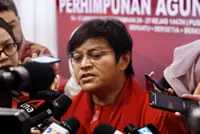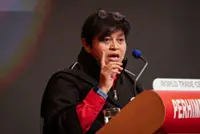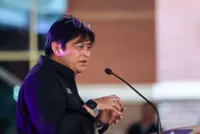PETALING JAYA: Two special task forces will be formed to study and quicken the process of separating the offices of the Attorney General (AG) and the Public Prosecutor (PP), says Datuk Seri Azalina Othman Said.
The Minister in the Prime Minister's Department (Law and Institutional Reforms) said that the task forces were being created following a meeting she chaired on Tuesday (Sept 12), which also included Parliamentary Special Select Committee (PSSC) on Human Rights, Election and Institutional Reform chairman and Selayang MP William Leong Jee Keen, representatives from the Opposition bloc, the AG's Chambers and the Public Service Department (PSD).
Already a subscriber? Log in
Save 30% OFF The Star Digital Access
Cancel anytime. Ad-free. Unlimited access with perks.





